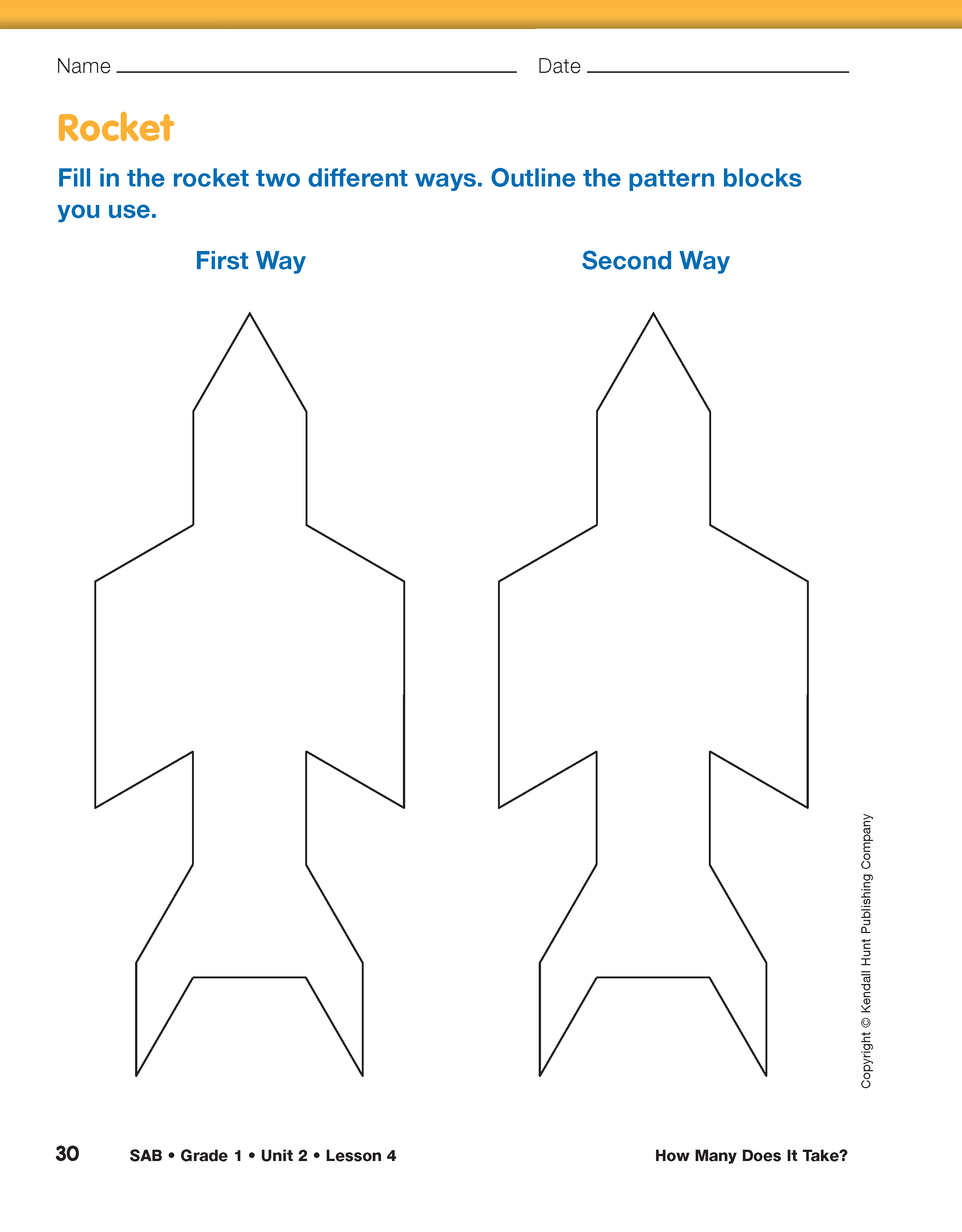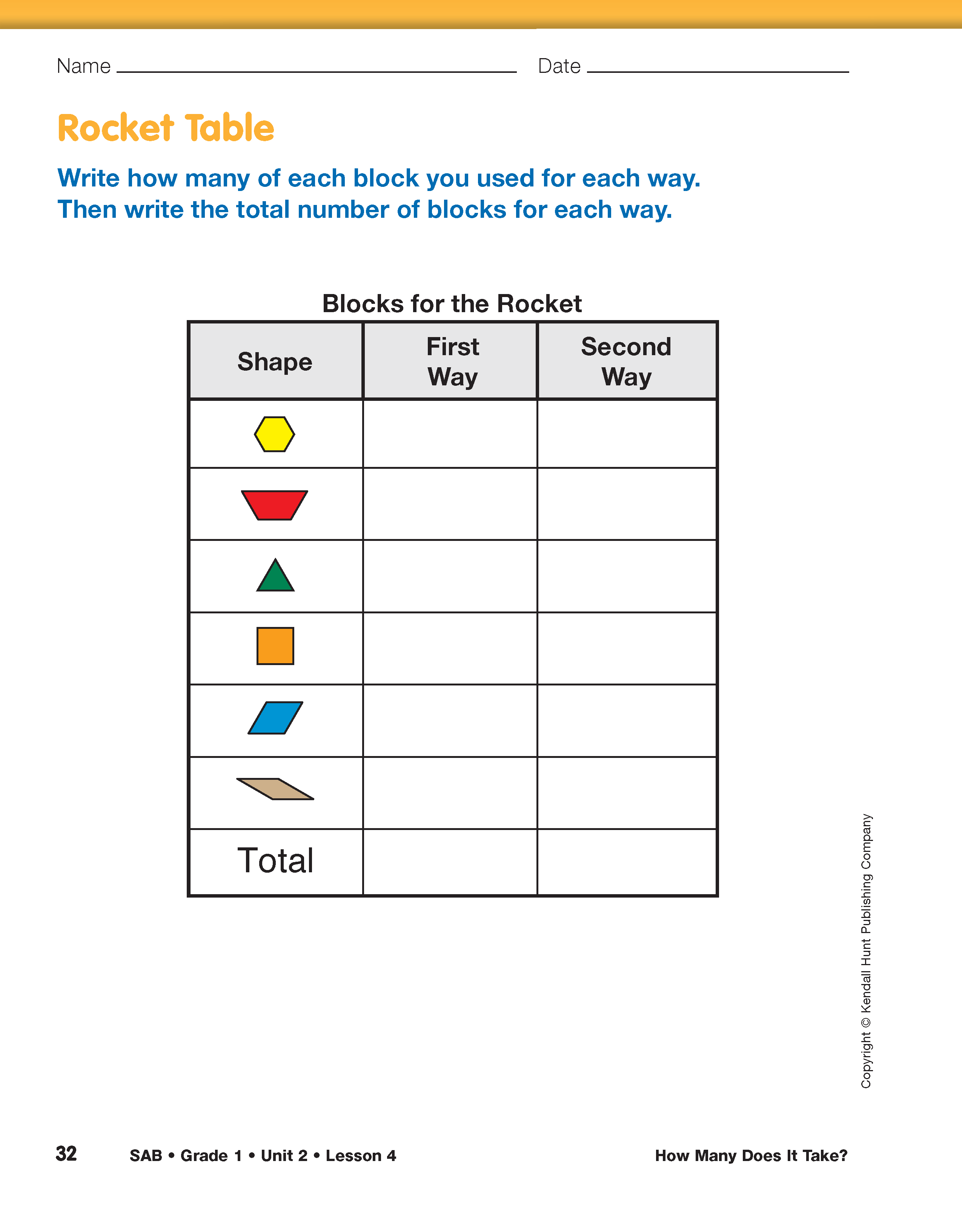Ask students to take a few minutes to color the pattern
block outlines on one of their snakes the same colors as the
pattern blocks (e.g., green, blue, red, orange, yellow, and tan
or white.)
Once each student has a snake colored, ask students
to display them in a prominent location so all students can see
them. Ask:
- Look at the snakes displayed. Did someone fill
the snake just like you did?
- Which pattern blocks were used to fill the
snake? (triangle, trapezoid, and blue rhombus)
- Did anyone use the square? Why not? (Possible
response: The corners do not fit.)
- Did anyone use the hexagon? Why not? (Possible
response: The shape is too large.)
- Which snake is covered with the greatest number
of blocks? Which blocks were used? (the green triangle)
- Which snake is covered with the smallest number
of blocks? Which blocks were used? (Trapezoids and a blue
rhombus. The two parts of the head require at least one
trapezoid and one rhombus.)
- Which snake is covered with many different
shapes? Which blocks were used? (trapezoid, triangle, and a
blue rhombus)
Refer students to the Rocket and Rocket Table sections of the
Student Activity Book pages removed earlier in the lesson. Ask
students to fill the rocket shape using all the different pattern
block shapes.
Use the Rocket and Rocket Table sections of the How Many
Does It Take? pages in the Student Activity Book to
assess students' abilities to identify two-dimensional shapes
[E1] and compose and decompose shapes [E4].
Some students will readily recognize which shapes will
fill a space or which blocks can be substituted for others
(e.g., two trapezoids will replace one hexagon). Other students
may use a trial-and-error approach.
Use the Turtle Master and the My Own Design Master as targeted
practice with these expectations.















